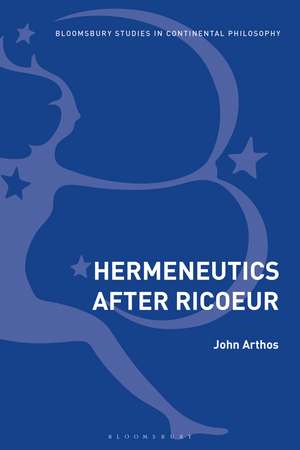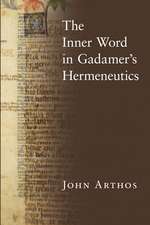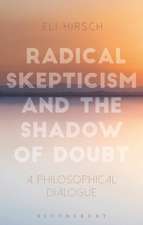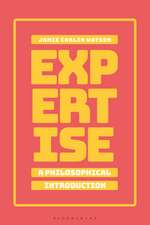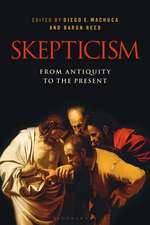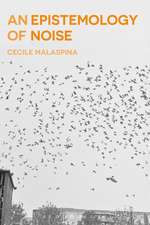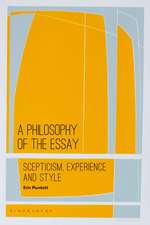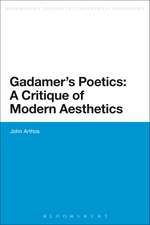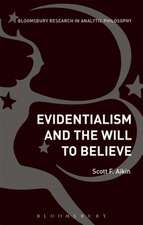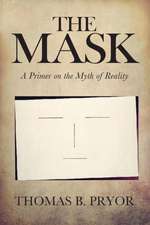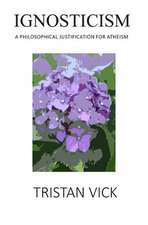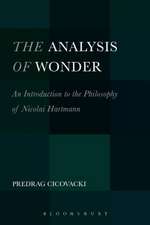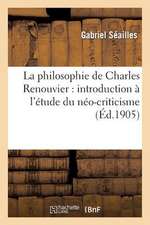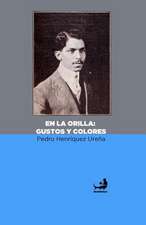Hermeneutics After Ricoeur: Bloomsbury Studies in Continental Philosophy
Autor John Arthosen Limba Engleză Paperback – 24 iun 2020
| Toate formatele și edițiile | Preț | Express |
|---|---|---|
| Paperback (1) | 224.76 lei 6-8 săpt. | |
| Bloomsbury Publishing – 24 iun 2020 | 224.76 lei 6-8 săpt. | |
| Hardback (1) | 657.29 lei 6-8 săpt. | |
| Bloomsbury Publishing – 26 dec 2018 | 657.29 lei 6-8 săpt. |
Din seria Bloomsbury Studies in Continental Philosophy
- 14%
 Preț: 179.26 lei
Preț: 179.26 lei - 23%
 Preț: 179.10 lei
Preț: 179.10 lei - 13%
 Preț: 238.22 lei
Preț: 238.22 lei - 31%
 Preț: 772.98 lei
Preț: 772.98 lei - 30%
 Preț: 773.39 lei
Preț: 773.39 lei - 14%
 Preț: 888.65 lei
Preț: 888.65 lei - 22%
 Preț: 772.98 lei
Preț: 772.98 lei - 13%
 Preț: 258.33 lei
Preț: 258.33 lei - 23%
 Preț: 256.02 lei
Preț: 256.02 lei - 30%
 Preț: 715.00 lei
Preț: 715.00 lei -
 Preț: 255.66 lei
Preț: 255.66 lei - 22%
 Preț: 773.06 lei
Preț: 773.06 lei - 14%
 Preț: 891.10 lei
Preț: 891.10 lei - 30%
 Preț: 774.20 lei
Preț: 774.20 lei - 13%
 Preț: 257.97 lei
Preț: 257.97 lei - 30%
 Preț: 715.00 lei
Preț: 715.00 lei - 22%
 Preț: 774.62 lei
Preț: 774.62 lei - 13%
 Preț: 256.20 lei
Preț: 256.20 lei -
 Preț: 256.59 lei
Preț: 256.59 lei - 22%
 Preț: 257.50 lei
Preț: 257.50 lei - 13%
 Preț: 257.03 lei
Preț: 257.03 lei - 13%
 Preț: 257.68 lei
Preț: 257.68 lei - 13%
 Preț: 258.15 lei
Preț: 258.15 lei - 30%
 Preț: 715.19 lei
Preț: 715.19 lei - 13%
 Preț: 256.49 lei
Preț: 256.49 lei - 22%
 Preț: 891.10 lei
Preț: 891.10 lei -
 Preț: 255.94 lei
Preț: 255.94 lei - 13%
 Preț: 236.45 lei
Preț: 236.45 lei - 30%
 Preț: 714.92 lei
Preț: 714.92 lei - 30%
 Preț: 773.81 lei
Preț: 773.81 lei - 22%
 Preț: 772.98 lei
Preț: 772.98 lei - 22%
 Preț: 889.08 lei
Preț: 889.08 lei - 30%
 Preț: 714.61 lei
Preț: 714.61 lei -
 Preț: 256.59 lei
Preț: 256.59 lei - 14%
 Preț: 772.98 lei
Preț: 772.98 lei - 22%
 Preț: 257.68 lei
Preț: 257.68 lei - 22%
 Preț: 891.75 lei
Preț: 891.75 lei - 30%
 Preț: 773.81 lei
Preț: 773.81 lei
Preț: 224.76 lei
Preț vechi: 288.89 lei
-22% Nou
Puncte Express: 337
Preț estimativ în valută:
43.01€ • 44.90$ • 35.59£
43.01€ • 44.90$ • 35.59£
Carte tipărită la comandă
Livrare economică 05-19 aprilie
Preluare comenzi: 021 569.72.76
Specificații
ISBN-13: 9781350170476
ISBN-10: 135017047X
Pagini: 264
Dimensiuni: 156 x 234 x 17 mm
Greutate: 0.37 kg
Editura: Bloomsbury Publishing
Colecția Bloomsbury Academic
Seria Bloomsbury Studies in Continental Philosophy
Locul publicării:London, United Kingdom
ISBN-10: 135017047X
Pagini: 264
Dimensiuni: 156 x 234 x 17 mm
Greutate: 0.37 kg
Editura: Bloomsbury Publishing
Colecția Bloomsbury Academic
Seria Bloomsbury Studies in Continental Philosophy
Locul publicării:London, United Kingdom
Caracteristici
Clarifies the path-breaking innovations and significant shortcomings of Ricoeur's contribution to contemporary hermeneutics
Notă biografică
John Arthos is Associate Professor in the Department of English at Indiana University, USA and a board member of the Society for Ricoeur Studies in the United States.
Cuprins
Introduction: Ricoeur's Significance for Any Future HermeneuticsChapter 1: The Seven DifferencesPart I. Starting from the Text Chapter 2: Educators or Experts? Chapter 3: Textual or Dialogic Hermeneutics? Chapter 4: Beyond Classical Narrative Part II. Onto-epistemic PossibilitiesChapter 5: Is Hermeneutics a Detour? Chapter 6: The Motley Cloak of Human (Hermeneutic) Identity Part III. The SocialChapter 7: The Treacherous Path from Promise to Institution Chapter 8: The Fate of PhronesisChapter 9: Hermeneutics and the PoliticalConclusion: The Hermeneutic Curriculum After RicoeurIndex
Recenzii
An excellent analysis and reflection on the significance of Ricoeur's thought from one of the premier scholars in hermeneutics. The book offers a fine balance of breadth, depth, and spaciousness of thought in dealing with key debates in the history of philosophy and how Ricoeur's contributions matter greatly.
Hermeneutics After Ricoeur is a superb book. It is a passionate defense of the project of a general hermeneutics, and shows that despite his own reservations, Ricoeur has much to contribute to this project. Arthos balances sensitive readings of Ricoeur's key works with a panoramic view of his place in the larger intellectual currents of his time. Above all, he shows that Ricoeur is a valuable ally to those concerned about the future of the liberal arts. An indispensable work.
John Arthos is perhaps uniquely gifted to write this book. The book evinces his singularly deep and erudite immersion in the hermeneutics not only of Ricoeur but of Gadamer and Heidegger, and the result is a sophisticated, interwoven argument for a general hermeneutics after Ricoeur. The model of hermeneutics that the book proposes - one of dialogue and contestation - is one that the book undertakes itself in analysis of Ricoeur. Of particularly timely interest in the absolutism of our times is the book's advance of a political hermeneutics building on Ricoeur that seeks recognition of our situated finitude and calls for prudential dialogue and judgment.
John Arthos is one of the few scholars who can offer such a comprehensive, lucid, and engaging study of Ricoeur's legacy in hermeneutics. Part intellectual history, part close reading of complex concepts, and part panoramic surveying of Ricoeur's rich body of works, Arthos's book is not only an outstanding contribution to hermeneutics, but also an original type of scholarly monograph, a real exercise in humanistic method, blending inquiry with historical narrative, and critique with application.
Hermeneutics After Ricoeur is a superb book. It is a passionate defense of the project of a general hermeneutics, and shows that despite his own reservations, Ricoeur has much to contribute to this project. Arthos balances sensitive readings of Ricoeur's key works with a panoramic view of his place in the larger intellectual currents of his time. Above all, he shows that Ricoeur is a valuable ally to those concerned about the future of the liberal arts. An indispensable work.
John Arthos is perhaps uniquely gifted to write this book. The book evinces his singularly deep and erudite immersion in the hermeneutics not only of Ricoeur but of Gadamer and Heidegger, and the result is a sophisticated, interwoven argument for a general hermeneutics after Ricoeur. The model of hermeneutics that the book proposes - one of dialogue and contestation - is one that the book undertakes itself in analysis of Ricoeur. Of particularly timely interest in the absolutism of our times is the book's advance of a political hermeneutics building on Ricoeur that seeks recognition of our situated finitude and calls for prudential dialogue and judgment.
John Arthos is one of the few scholars who can offer such a comprehensive, lucid, and engaging study of Ricoeur's legacy in hermeneutics. Part intellectual history, part close reading of complex concepts, and part panoramic surveying of Ricoeur's rich body of works, Arthos's book is not only an outstanding contribution to hermeneutics, but also an original type of scholarly monograph, a real exercise in humanistic method, blending inquiry with historical narrative, and critique with application.
